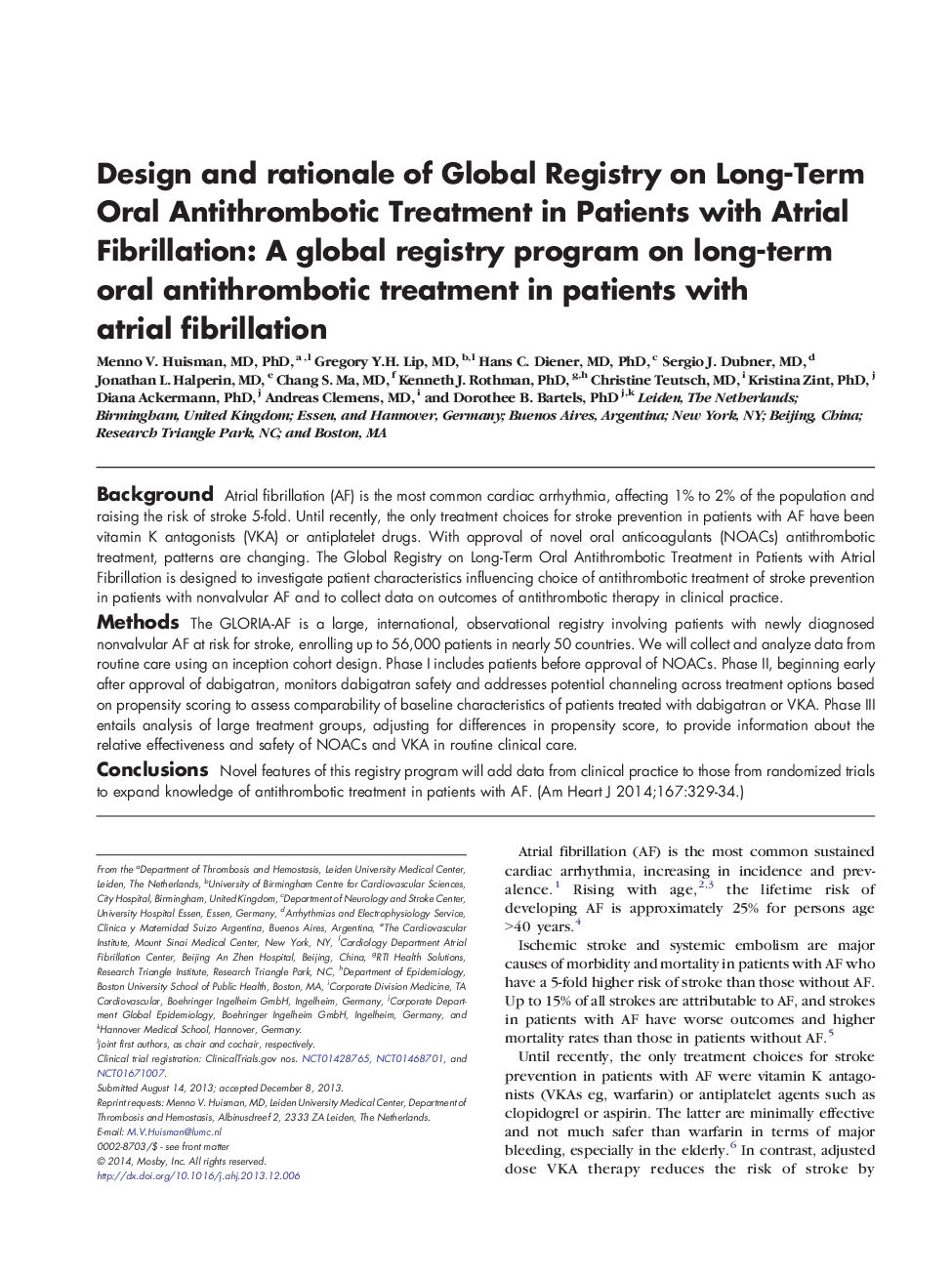| Article ID | Journal | Published Year | Pages | File Type |
|---|---|---|---|---|
| 5928505 | American Heart Journal | 2014 | 6 Pages |
BackgroundAtrial fibrillation (AF) is the most common cardiac arrhythmia, affecting 1% to 2% of the population and raising the risk of stroke 5-fold. Until recently, the only treatment choices for stroke prevention in patients with AF have been vitamin K antagonists (VKA) or antiplatelet drugs. With approval of novel oral anticoagulants (NOACs) antithrombotic treatment, patterns are changing. The Global Registry on Long-Term Oral Antithrombotic Treatment in Patients with Atrial Fibrillation is designed to investigate patient characteristics influencing choice of antithrombotic treatment of stroke prevention in patients with nonvalvular AF and to collect data on outcomes of antithrombotic therapy in clinical practice.MethodsThe GLORIA-AF is a large, international, observational registry involving patients with newly diagnosed nonvalvular AF at risk for stroke, enrolling up to 56,000 patients in nearly 50 countries. We will collect and analyze data from routine care using an inception cohort design. Phase I includes patients before approval of NOACs. Phase II, beginning early after approval of dabigatran, monitors dabigatran safety and addresses potential channeling across treatment options based on propensity scoring to assess comparability of baseline characteristics of patients treated with dabigatran or VKA. Phase III entails analysis of large treatment groups, adjusting for differences in propensity score, to provide information about the relative effectiveness and safety of NOACs and VKA in routine clinical care.ConclusionsNovel features of this registry program will add data from clinical practice to those from randomized trials to expand knowledge of antithrombotic treatment in patients with AF.
